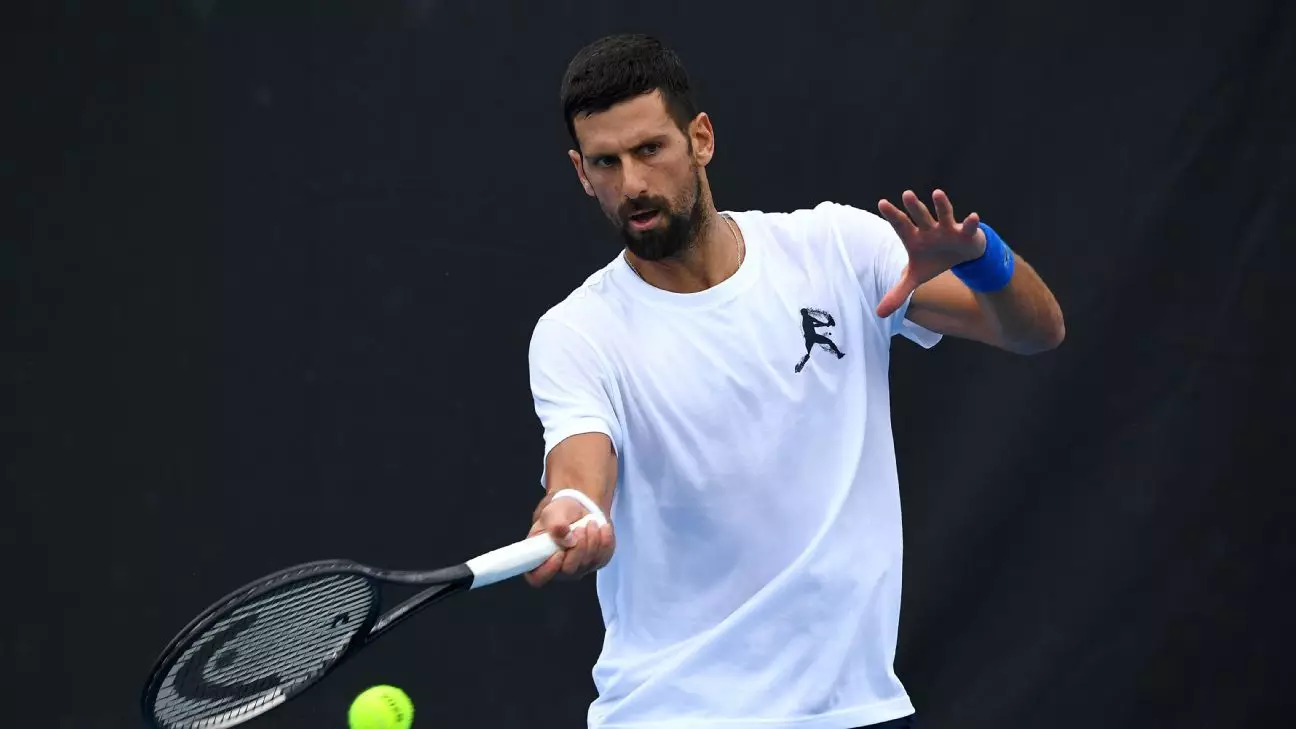As the tennis community gears up for another thrilling season, significant discussions are emerging around the issue of doping in the sport. One of the central figures sparking this debate is none other than Novak Djokovic, a legendary player who has dominated the tennis scene and is now aiming for a historic 25th Grand Slam title. Djokovic’s return to the court has reignited questions about fairness in tennis, particularly relating to the treatment of players involved in doping scandals. His comments reveal deeper concerns not only about player treatment but also about transparency and consistency in how doping violations are handled across the sport.
Djokovic expressed his discontent at a recent press conference, highlighting his frustration with the lack of information surrounding Jannik Sinner’s doping case. Djokovic articulated a sentiment many players voice — a belief that they are often left “in the dark” when it comes to critical information that affects their peers and the integrity of the sport. He pointed out that some players languish under the burden of unresolved cases while others, like Sinner, seem to escape serious repercussions despite positive tests. Such discrepancies aggravate a perceived double standard that Djokovic believes undermines the integrity of tennis.
The Serbian’s observations bring to light a pressing issue in not just tennis but in sports at large — the need for a standardized approach to doping violations. He cited instances of players awaiting resolution on their cases for over a year, contrasting sharply with how Sinner’s situation has been handled. The comparison is stark and serves to question the fairness of the investigation process itself.
Notably, Djokovic did not shy away from casting doubt on the efficacy and fairness of the International Tennis Integrity Agency (ITIA) and its protocols. The complexities surrounding Sinner’s positive tests raise critical questions about the legitimacy of the disciplinary measures in place. Djokovic underscored the importance of transparency, suggesting that tennis authorities have a responsibility to communicate openly with players and fans alike. In light of the recent revelations regarding not only Sinner but also former world No. 1 Iga Swiatek, Djokovic argued that the sport’s image is tarnished by a lack of cohesive communication.
He urged the ATP to take the initiative to share more substantial information, positing that the public’s right to know should take precedence over the secrecy that currently envelops many doping cases. The ramifications of high-profile doping scandals stretch beyond the individuals involved; they threaten to sully the reputation of the entire sport.
Despite grappling with these frustrating elements of the sport, Djokovic remains committed to his legacy and preparation for the Australian Open. His focus is palpable as he gears up to compete once again after a knee surgery earlier in the year. With a remarkable ten Australian Open titles under his belt, Djokovic is acutely aware of what is at stake. However, he also recognizes that the events off the court could have implications for the atmosphere surrounding the competition.
The establishment of a partnership with former rival Andy Murray as his coach highlights Djokovic’s commitment to a strong performance. While sharing insights with a rival can feel disconcerting, it also symbolizes a more collaborative spirit within professional tennis that could help uplift the sport amidst its ongoing challenges.
As Djokovic prepares to embark on yet another chapter in his illustrious career, his critiques about doping protocols and transparency echo not only within the walls of the tennis courts but resonate throughout the broader sports community. The questions he raises about fairness and treatment of athletes should compel officials and governing bodies in tennis to reassess their handling of doping cases. Ultimately, ensuring a level playing field is essential for the credibility of tennis as a sport, and Djokovic’s voice in this ongoing debate is both significant and necessary. The next chapter of tennis will not just depend on who claims victory on the court but on how the sport addresses these crucial ethical challenges.


Leave a Reply